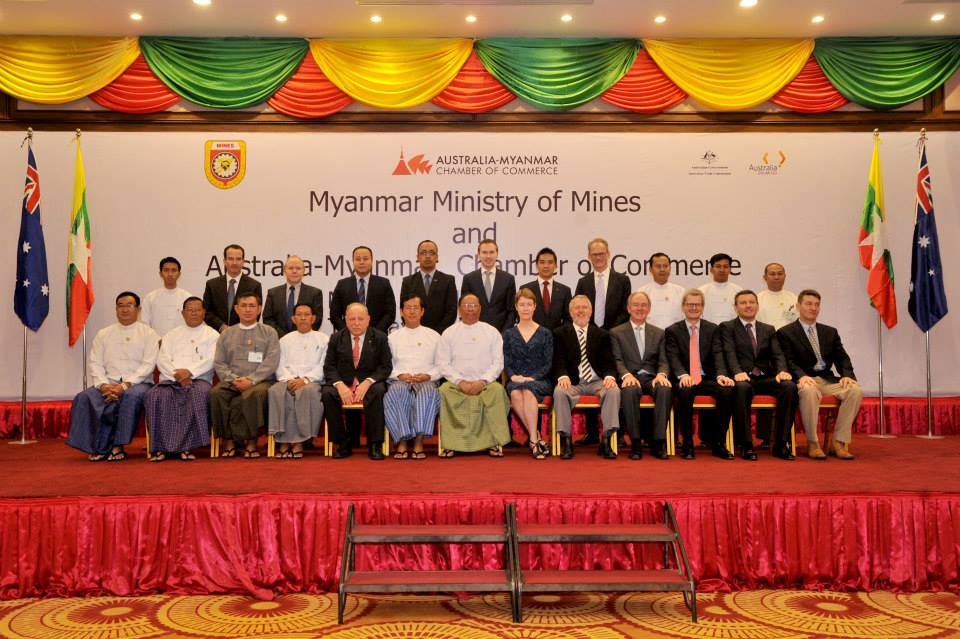Australian money and expertise flowing into Myanmar’s mining industry has enabled war crimes, a coup, denial of self-determination to ethnic peoples on their own lands, and environmental destruction, according to the report “Mines Against Humanity” released by advocacy group Justice For Myanmar today.
Australia’s failure to impose sanctions on the Myanmar junta’s sources of funds and a lack of guidance on Australia’s expectations for responsible business in Myanmar have allowed companies, executives and investors from Australia to remain active in the junta-dominated mining industry, it says.
Australian owned or led companies continued to operate Myanmar’s mining industry after the Feb. 1, 2021 coup, and are both legitimizing the junta that seized power and providing it with revenue for its war crimes, the report says.
Australian companies remain active in Myanmar’s mining industry at three levels: extraction, exploration and services. They provide the junta with revenue, or “support the maintenance of a sector that bankrolls junta atrocities,” Justice For Myanmar said.
Yadanar Maung, a spokesperson for the advocacy group, explained: “The Myanmar military operates as a cartel that is stealing the wealth of the people of Myanmar on a massive scale to fund its war of terror and enrich war criminals. Yet, there are Australian companies, executives and investors in the mining sector that are continuing business as usual, financing the illegitimate junta and helping to keep a corrupt and destructive mining sector open for business.”
“It is unacceptable that three years after the military’s illegal coup attempt, Australia is still failing to take necessary action to block the junta’s sources of funds from mining and other lucrative sectors,” Yadanar Maung added.
“Mines Against Humanity” documents 10 “company networks” that remained active in Myanmar’s mining sector following the coup and several others that remain registered in Myanmar but are not currently active in the sector. Justice For Myanmar said the inactive companies need to be monitored because they could resume business.

The 10 active companies include one “thought to be owned” by high-profile Australian mining entrepreneur Mark Creasy (Cornerstone Resources) and another listed on the Australian Stock Exchange (Australian Laboratory Services).
Cornerstone Resources has continued to mine and refine zinc in Shan State since the coup, the report says. It provides documents showing that the company had transactions with military -controlled conglomerate Myanmar Economic Corporation, and says these transactions may breach sanctions imposed by the United Kingdom because Cornerstone was registered in the British Virgin Islands at the time of the transactions.
The Myanmar unit of ASX-listed ALS has conducted mineral testing for junta-controlled universities and Australian-led Access Resources Asia, which has been pushing ahead with gold exploration in eastern Shan State despite the coup and local opposition, Mines Against Humanity reports.
Another network of companies, Valentis, is backed by Australian investors and set up by brothers closely connected to the Myanmar military. The network of companies has provided services to a Myanmar arms broker and had business links to a militia under junta control, Mines Against Humanity reports.
Australian expertise is also being sold to China-owned Wanbao Mining, which operates copper mines in partnership with military conglomerate Myanma Economic Holdings Limited, the report says.
It says that Australia-based miner PanAust has maintained its large-scale exploration licenses in Sagaing Region and that by paying fees to the junta, it helps fund its atrocities.
Asia Pacific Mining Ltd., a company led by Australian executives, has been communicating with senior members of the junta to continue and expand its exploration activities under cover of the coup, Justice for Myanmar says.
Urgent action is required to minimize the damage that Australia is inflicting on Myanmar, “Mines Against Humanity” says, explaining that Australia’s government, companies, investors and citizens have profited from financing and legitimizing the Myanmar military’s coup and subsequent war.
It calls on Australia to align itself with international law, best-practice principles on business and human rights, and with the common approach Western democratic countries are taking to Myanmar by, for example, minimizing the flow of Australian money to the junta by restricting payments into junta-controlled accounts.

















